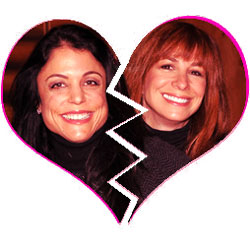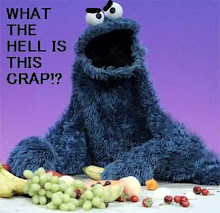 I'm in the process of going through a friend break up. This has happened before in my life, but never on such a deep-seeded level. Recently there have been articles talking about how a friend break up can be just as destructive as the end of a romantic relationship, or even a death in the family. Considering the emotional stress I've gone through to reach the conclusion that I need to leave behind a friendship I've spent so much time to build, that association seems all the more appropriate.
I'm in the process of going through a friend break up. This has happened before in my life, but never on such a deep-seeded level. Recently there have been articles talking about how a friend break up can be just as destructive as the end of a romantic relationship, or even a death in the family. Considering the emotional stress I've gone through to reach the conclusion that I need to leave behind a friendship I've spent so much time to build, that association seems all the more appropriate.Friendships are an interesting business. If you happened to see the PBS program "This Emotional Life" about how and why we form friendships, it's almost depressing to know how much forming meaningful relationships with others is really just about ourselves. In the end, we are all looking for a way to affirm our self-image or our sense of value and self-worth. Truly altruistic relationships, with no motive for personal gain, are so rare it's almost silly to think our chosen friendships can exist without it. That's not always a bad thing, though. It can actually lead to very positive effects for all involved. But in other instances, this careful balancing act of pursuing our own needs through others while maintaining a functioning relationship can be thrown terribly and disastrously off base.
Like romantic relationships, friendships can be abusive and manipulative. Somewhere along the line, or perhaps even from the outset, the balance of power in a friendship can allow for one party to dominate the other with their actions, emotions, and needs. Not unlike couples in abusive relationships, or friends and family of addicts, co-dependence and periods of ill-fated reasoning and explaining away the corrosive attachments we make to toxic people are realities of imbalanced, unhealthy friendships. There is a sense that with enough effort we can help people change, although, as 'Intervention' teaches us, we don't have the power to change others; they have to be willing and able to change themselves.
I've finally come to realize that I have been battling through a friendship, hoping that if I was earnest enough in my periodic entreaties for my friend to change behavior that either hurt me or allowed her to manipulate and deteriorate our friendship, things could get better between us. For a long time I felt that we could mend all of the hurt we've inflicted on each other over the years. At this point in our lives, this friend is more like family, making it even harder to break away from the long history we have. But this person has also become someone that is harder for me to reason with or talk to civilly about our issues. Most people already know that we can't get through an evening together without rubbing salt into wounds like peevish children. It's like this season of 'Real Housewives of New York,' in which Bethenny and Jill can be friends no more. Everything is just too complicated and toxic and ridiculous and twisted by ego to repair.
I didn't need a TV show to inform me that I was in a bad way, but I needed to align my ailing friendship with co-dependence to see that I'm only hurting myself in hoping that I have the power to change someone else or the choices they make. However, in this case, there are no intervention specialists to guide me. There is no cathartic or poignant way to cut ties or feel vindicated. I think that's what kept me from walking away until now: I wanted my friend to see how wrong she was. But now, I will be in the wrong if I let myself continue trying to keep a sinking ship afloat, drowning my happiness in the process.
And for anyone that saw this, it was heartbreaking for me:
The Real Housewives of New York City - Videos - Relive the Ambush | Bravo TV Official Site

No comments:
Post a Comment